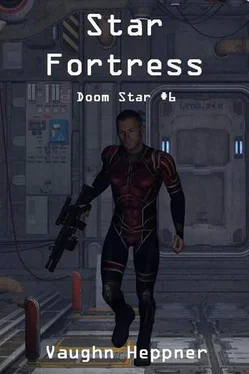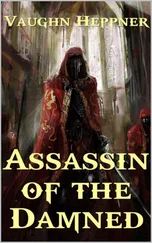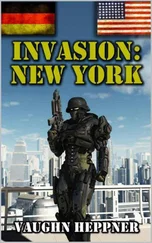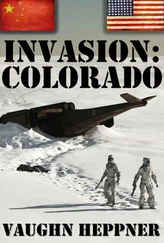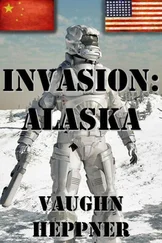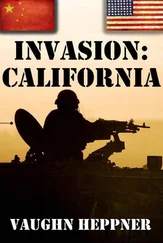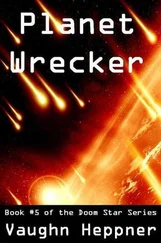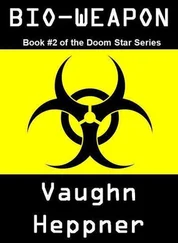“Why couldn’t Neptune be part of the Fuhl Event?” Tan asked. “If I understand the concept, four equidistant points of high gravitational force are needed.”
Euthyphro’s bushy eyebrows lofted. “What an interesting idea. I hadn’t thought of the possibility. Does the mathematics even support such a notion? I will have my techs run the computations.”
“It would seem we have even less time than we thought to defeat the cyborgs.”
“To give you some idea of the severity of the situation,” Euthyphro said, “I recalculated the possibility of human victory given the cyborgs have a working Fuhl Event. In that case, our odds for survival drop to seven percent.”
“Spare me your pessimism,” Tan said.
“I assure you this has nothing to do with pessimism but is an objective assessment of reality. Already, the cyborgs are militarily superior to any combination of our allied forces. That means—”
“That means you should hold your tongue for the moment,” Tan said. “I must decide what to do with this new data.”
“My seven percent probability occurs only if the Fuhl Event is an actuality.”
“I’m well aware of that. The percentage isn’t the new data I was referring to, but the possibility that a Fuhl Mechanism exists.”
“Ah,” Euthyphro said. He cleared his throat. “My recommendation is that we warn the others as quickly as possible so they will accelerate their attack against Neptune.”
Tan shook her head. “There are many factors in play. We desire victory, certainly. But we do not desire victory at the expense of Highborn dominance. We cannot play into their hands.”
“The Highborn will not escape this war unscathed. Given their paltry numbers, I would estimate—”
“Please,” Tan said, holding up her hand. “Give me a moment of silence.” She closed her eyes and listened to the chimes. There were many factors to consider. How many Highborn and Social Unity warships would journey to Neptune? What if the cyborgs attacked the Jupiter System while the Alliance Fleet traveled there to the edge of the Solar System?
Tan’s eyes opened. She regarded Euthyphro as he studied the screen.
“Attend me,” she said.
The bearded Advocate turned around.
“We cannot afford to send more meteor-ships out-system,” she said. “We have too few as it is and building more takes too much time and energy. If we send meteor-ships to Neptune and the cyborgs reappear here, it might mean the end of Jovian Civilization.”
“We do nothing then?” Euthyphro asked.
“We do not send warships,” Tan said. “Instead, we send knowledge, information.”
“I will alert the communications—”
“You will listen to me,” Tan said. “We will not use tight-beam communication. Instead, I will send a representative to Marten Kluge. I will strengthen his hand and increase the Jovian presence on Earth by giving him critical data to use as a bargaining chip.”
“Marten Kluge is not noted for his savant-like behavior. He is a soldier.”
“He is a killer,” Tan said. “At the moment, he is our killer. He has proven himself on more than one occasion. We aid him with what we can spare—knowledge, data. The question is: who should go?”
Euthyphro stepped back in alarm. “Firstly, I must protest. The data is time-urgent. The Alliance must launch the attack sooner rather than later. A Jovian vessel heading to Earth will take at least two months to arrive, and that would be under stringent conditions. Secondly, I hope you are not thinking of sending me. I am unsuited to space travel. I have—”
“Calm yourself,” Tan said. “I need you here. Besides, perhaps you are right. The knowledge might spur the Highborn and possibly spur Social Unity into sending everything they can to Neptune now. The hope of acquiring the Fuhl Mechanism—”
“We must ensure that neither side gains an FTL drive.”
“And how do we do that?” Tan asked.
“We would have to send Jovian warships with the armada.”
“And leave ourselves defenseless here?” Tan asked. “I already told you my decision in that regard.”
“It is an interesting quandary,” Euthyphro said, as he plucked at his beard. “Do we risk sending our warships to Neptune in the hope of acquiring a fantastic technology? Or do we keep ourselves guarded and hope that neither the Highborn nor Social Unity gains the device?”
“It may be that we should remain silent on the subject,” Tan said, “thus lessening the chance that either of them acquires the FTL drive.
“What if because of that the Alliance Fleet dallies and gives the cyborgs time to refine the Fuhl Mechanism, thereby winning the war with it?”
Tan rubbed her forehead. “I must think more deeply on the subject. It is unwise to make a hasty decision.”
“Time is our enemy,” Euthyphro said.
Tan nodded absently.
“If you desire my recommendation…”
Tan looked up. “No. You will continue to study the data. I want conclusive proof. Until you can give me more evidence, I must weigh the options and make a carefully reasoned choice.”
Euthyphro plucked at his beard, with a troubled look on his thick features.
“I do not want to hear about a Jovian leak,” Tan said.
“I assure you, Chief Strategist—”
“Such a leak would mean your death, and in an extremely unpleasant manner,” Tan added.
Euthyphro paled. “I am a philosopher of Callisto. Threats are meaningless to me. My given word is more certain than sunlight. I shall tell no one about this and allow no outside communications until further notice.”
“See that you do,” said Tan. “Now go. I have much to consider.”
Euthyphro bowed his head and departed. He left the Chief Strategist staring at the screen. It replayed the flash in slow motion, cycling through the colors.
Do the cyborgs possess an FTL drive? Tan asked herself . The Dictates help us if they do .
Far away from Jupiter on Earth, Marten, Nadia and Osadar rode a magnetic-rail train to Athens. The train sped over two hundred and fifty km/h through Lebanon Sector, with the Mediterranean Sea only a few kilometers away. Outside, the wind howled, at times rocking the reinforced cars as snowy particles swirled in the air. Above, dark clouds raced across the sky.
Marten and Nadia sat together, staring out a window. She kept pointing at trees, bleak snowscapes and old houses.
“I used to watch videos of Earth,” Nadia said. “I never thought it would be anything like this. It’s beautiful.”
“And cold,” Marten said. He sat closest to the window and felt the blasts seeping through.
The train-car rocked gently as snow batted against the window.
“I do not like this,” Osadar said. She was taller than Marten and wore heavy garments. They had nothing to do with the cold, but concealed her skeletal cyborg body. It was thin, with particles of flesh and too much graphite bones, titanium and plasti-flesh. She wore a senso-mask, giving her the simulation and look of real flesh, eyes and hair. To finish the disguise, she wore a hat.
A reading device rested in her lap. The latest title was Outbreak of Violence in Syrian Sector . Osadar had spoken about the article. Political Harmony Corps personnel had risen to prominence and taken up arms again. They backed Director Backus of Kurdistan Sector, who had gained a following in the last few days.
Many of the directors pledged Backus service in the interest of Social Unity. The Army, Navy and Space Arm followed Cone, with Manteuffel of the Cybernetic Corps as her second-in-command. Even now, the former Security Specialist was on the car’s holo-screen, broadcasting a message to the many billions of citizens. She urged calm and spoke about the need for a military alliance. They must band with the Highborn against the dreaded cyborgs. Humanity’s existence was at stake. This was a time for stern measures. It was not the time for the ordinary political maneuverings that had brought about the war in the first place.
Читать дальше
